|
|
| |
Genre Descriptions for Writers
(Courtesy of "AgentQuery.Com")

We can't stress enough how extremely important it is for all aspiring authors to know what genre they are writing in. Hybrid forms are very difficult to pitch and sell to an agent, especially if you are a new writer. For your first novel, our strong advice is to firmly install yourself in one genre or another. Why? Because it will not only enhance your chances of becoming published, but also make the writing of your novel a bit easier.
 |

 |
Commercial Fiction:
Commercial Fiction uses high-concept hooks and compelling plots to give it a wide, mainstream appeal. Commercial fiction often has the "ouuuh" factor: summarize what happens in your novel is a single, succinct sentence, and you invariably get, "ouhhh, that sounds interesting!" Plot (the events) and story (the overall tale) are first and foremost; characters' choices and actions create heightened drama that propels the reader forward with urgency. Like literary fiction, the writing style in commercial fiction is elevated beyond generic mainstream fiction; but unlike literary fiction, commercial fiction maintains a strong narrative storyline as its central goal, rather than the development of enviable prose or internal character conflicts. Commercial fiction often incorporates other genre types under its umbrella such as women's fiction, thriller, suspense, adventure, family saga, chicklit, etc.
|
 |

 |
Fantasy:
Fantasy uses imaginary worlds and mystical creatures within its storyline. Familiar characters of fables and mythology such as prince and princesses, knights, dragons, giants, faeries, goblins, gnomes, wizard and witches often show up in this genre. Magic, spells, swords & sorcery, supernatural powers, talking animals, and fanciful kingdoms are welcomed stereotypes. Common fantasy themes include quest for precious objects, rescuing damsels in distress, and battles against discernable good and evil. Unlike science fiction, fantasy is rooted in make-believe rather than science; its only limitations are the expectations and preconceived notions of its dedicated readership. Fantasy subgenres include modern, historical, mythological, epic, alternate and parallel worlds, dark fantasy, and graphic novels. Fantasy is also included in the general grouping of "genre fiction", "category fiction", and "mainstream" fiction.
|
 |

 |
Historical Fiction:
Historical fiction is often a work of literary fiction or commercial fiction in which the plot and story transpire during a distinct era in the past. True historical fiction portrays conflicts and characters that depended on a particular historical time period for their existence (Civil War battles and heroes, slave trade in colonial America, 18th century British royalty, 1960's civil right leaders, etc.) These conflicts and characters are inseparable from the author's decision to set the story in a non-contemporary era; the historical time and place influence the unfolding narrative and the character's struggles within it. Historical fiction is a careful balance between fact and fiction; and although characters and events may be exaggerated or completely made-up for the sake of a good story, accurate historical facts and details lend credence and legitimacy to the overall tale. Although literary or commercial fiction often incorporates historical elements into their stories for atmospheric effect, this is not the same as historical fiction which uses historical settings and time periods to establish its core conflicts.
|
 |

 |
Horror:
Horror fiction has one, inelucable goal: to scare its readers. Its chilling pendulum swings with a broad arc, and uses a wide range of techniques to terrify and titillate its audience. From extreme blood and guts, graphic violence, murder and mayhem to psychological suspense, criminal underworlds, supernatural folklore, erotica, and surrealism, horror often portrays the base, subversive side of its fictional world. The problem is not defining horror, but defining the manner in which it engenders fear in the hearts and minds of its readers. Subgenres include dark fiction, dark fantasy, cutting edge, erotic, extreme, occult, vampire, gothic, psychological, supernatural, paranormal, pulp—the list goes on, illustrating the innumerable and imaginative ways that horror explores the unspeakable. Unlike traditional thrillers and suspense, which are based in reality, horror often uses folklore and fantasy to create manifestations of evil, death, and destruction.
|
 |

 |
Literary Fiction:
If you marvel at the quality of writing in your novel, above all else, then you've probably written a work of literary fiction. Literary fiction explores inherent conflicts of the human condition through stellar writing. Pacing, plot, and commercial appeal are secondary to the development of story through first-class prose. Multi-layered themes, descriptive narration, and three-dimensional characterization distinguish this genre from all others. Literary fiction often experiments with traditional structure, narrative voice, and storylines to achieve an elevated sense of artistry. Literary fiction often merges with other fiction types to create hybrids genres such as literary thrillers, mysteries, historicals, epics, and family sagas.
|
 |

 |
Multi-Cultural
Multi-cultural can be a tricky genre to pin-down simply because it can mean different things to different literary agents and publishers. Most insiders will agree that multi-cultural fiction is a code word for books that possess racial and ethnic diversity within the depiction of its characters, cultures, and conflicts. This includes African-American and Latino fiction. In addition, books characterized as multi-cultural often fall under the broader genre umbrella of commercial fiction, romance, chicklit or literary fiction. Waiting to Exhale, House on Mango Street, and Joy Luck Club are all examples of multi-cultural fiction as well as commercial/literary fiction.
|
 |

 |
Mystery:
Mysteries typically focus on the process of solving a crime, rather than the details of the crime itself. The puzzle behind the crime is central to the plot. Amateurs or professional investigators perform the sleuthing; and often a single protagonists or a whole host of characters reoccur in popular serial titles. Unlike crime/true crime fiction which explores the world of the criminal mind, mystery focuses on the investigators or detectives determined to bring the criminal to justice. The strong "mystery" narrative behind the crime is a trademark of this genre. Subgenres include cozies, historicals, culinary, detective, supernatural, caper, women in peril, noir, detective fiction, and classic whodunits. Mystery is also a member of the general grouping of "genre fiction", "mainstream fiction", and "category fiction".
|
 |

 |
Romance:
Romance is a specific fiction genre in which the central conflict revolves around the love story between a man and a woman. The settings are often exotic. The characters are regal and glamorous. And the ensuing story is inevitably dramatic—even melodramatic. Furthermore, writing style aides the passion of the climactic conflicts and events, and catapults the reader through a gratifying romantic fantasy. If you didn't intentionally set out to write a romance novel, it's probably not a romance. There are specific publishing houses dedicated to the publication of this genre as well as agents who specialize in the sale of these novels. Subgenres include contemporary, suspense, time-travel, futuristic, paranormal, western, historical, regency, and gothic romance. Romance is also a member of the general grouping of "genre fiction", "mainstream fiction", "mass market fiction" and "category fiction".
|
 |

 |
Science Fiction:
Science fiction incorporates various types of science into its story, settings, characters and the challenges that they must overcome. Scientific details, facts, and rules are either adhered to or broken, but either way, they contribute to the contextual storyline as well as the world created within the novel. Science becomes a character itself. Unlike its close genre cousin, "fantasy", science fiction utilizes scientific elements based in reality—not simply imaginary fables or mythology—even though, often, science fiction stretches the bounds of known scientific laws and discoveries. Sometime science fiction incorporates both science and fantasy into its fictional world; for this reason, they are often paired together as a single genre. Science fiction is also included in the general grouping of "genre fiction", "category fiction", "mainstream" fiction", or "mass market fiction".
|
 |

 |
True Crime:
Crime fiction centers its plot on the perpetration of a crime. There are two main subgenres of crime fiction: detective fiction and true crime. True crime focuses its story on the crime scene and the criminal mind. Lurid crime scenes, graphic violence, con games, organized crime, and the criminal underworld are all familiar elements in true crime fiction. Detective fiction, on the other hand, focuses its narrative on the professional or amateur investigators seeking to solve the crime and bring the criminal to justice.
Detective fiction involves "detection" of a crime. Detective fiction can be a subgenre of both mystery and crime fiction, depending on the type of characters doing the sleuthing, and the story's emphasis on the "mystery" vs. the "crime". Sub-genres of detective fiction include hard-boiled, noir, and police procedurals. For this reason, you often see this genre grouped together as crime/detective/true crime.
|
 |

 |
Women's Fiction:
Women's fiction is just that: fiction about women's issues for a female readership. However, it is not the same as chick lit or romance. While utilizing literary prose, women's fiction is very commercial in its appeal. Its characters are often women attempting to overcome both personal and external adversity.
Although women's fiction often incorporates grave situations such as abuse, poverty, divorce, familial breakdown, and other social struggles, it can also explore positive aspects within women's lives. Romantic love stories are also part of women's fiction, and although love stories are found in chick lit and romance, the mature depth and tone of their development within women's fiction set them apart from other genre classifications.
|

|
|
|
WRITERS AND AUTHORS TALK ABOUT ALGONKIAN CONFERENCES 
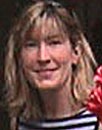 Interview with Algonkian attendee, author Julie Kaewert: "Because I was changing agents, I knew it was important to learn how to package the MS effectively ... When I saw the Seven Mountains Writers Conference on the website, it looked like just the thing. In fact, it far exceeded my expectations in every way." Interview with Algonkian attendee, author Julie Kaewert: "Because I was changing agents, I knew it was important to learn how to package the MS effectively ... When I saw the Seven Mountains Writers Conference on the website, it looked like just the thing. In fact, it far exceeded my expectations in every way." 

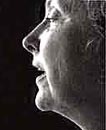 Interview with Algonkian attendee, author Kate Gallison: "One way to lengthen your life is to stretch it backwards, and so I read a lot of history. Early movies fascinate me. They were both like and unlike stage plays of the time, borrowing actors and melodramatic plots, but developing entirely new techniques for portraying dramatic action. " Interview with Algonkian attendee, author Kate Gallison: "One way to lengthen your life is to stretch it backwards, and so I read a lot of history. Early movies fascinate me. They were both like and unlike stage plays of the time, borrowing actors and melodramatic plots, but developing entirely new techniques for portraying dramatic action. " 

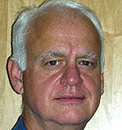 Interview with Algonkian attendee, Greg Haas: "I could tell a story about how the process works. Fiction gave me a chance to go where non-fiction wouldn't let me…inside people at both ends of the political food chains heads. The final inspiration came from a strange place Karl Rove spent a great deal of time." Interview with Algonkian attendee, Greg Haas: "I could tell a story about how the process works. Fiction gave me a chance to go where non-fiction wouldn't let me…inside people at both ends of the political food chains heads. The final inspiration came from a strange place Karl Rove spent a great deal of time." 

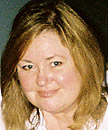 Interview with Algonkian attendee, Candy Somoza: "The preparation work got us thinking about the book in the store, how it got there, what makes it sell. While we read works and studied the writing, we also focused on the outside, so to speak, the marketing, and that was essential to prepare us." Interview with Algonkian attendee, Candy Somoza: "The preparation work got us thinking about the book in the store, how it got there, what makes it sell. While we read works and studied the writing, we also focused on the outside, so to speak, the marketing, and that was essential to prepare us." 

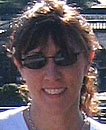 Interview with Algonkian attendee, Barbara Marquart: I also wanted to tell a story that celebrates the deep bond between mothers and daughters - the struggles we all face to transcend our circumstances, forgive each other's failures and accept each other's limitations in order to find peace. Interview with Algonkian attendee, Barbara Marquart: I also wanted to tell a story that celebrates the deep bond between mothers and daughters - the struggles we all face to transcend our circumstances, forgive each other's failures and accept each other's limitations in order to find peace. 

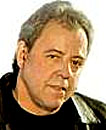 Interview with Algonkian attendee, author Thierry Sagnier: "I was stuck, hadn't done any serious writing for months, and a friend of mine—also a writer—suggested I attend a workshop to kickstart me. So I looked on the net and found that there were quite a few places that offered what I wanted, but when I researched the Algonkian conference, I recognized the name of a reporter I really respect. He'd been there and was highly complimentary, so that sealed it for me." Interview with Algonkian attendee, author Thierry Sagnier: "I was stuck, hadn't done any serious writing for months, and a friend of mine—also a writer—suggested I attend a workshop to kickstart me. So I looked on the net and found that there were quite a few places that offered what I wanted, but when I researched the Algonkian conference, I recognized the name of a reporter I really respect. He'd been there and was highly complimentary, so that sealed it for me." 

 Interview with Algonkian attendee, Rae Bryant: "After completing the first draft of Ficklestick's , I wanted professional guidance and a community of writers to help me marinate the work. It was important to me as a first time novelist to seek feedback before finalizing the intricacies. By retaining a sense of early process malleability, I was able to really hear criticisms and then incorporate skills learned. Algonkian provided the perfect setting." Interview with Algonkian attendee, Rae Bryant: "After completing the first draft of Ficklestick's , I wanted professional guidance and a community of writers to help me marinate the work. It was important to me as a first time novelist to seek feedback before finalizing the intricacies. By retaining a sense of early process malleability, I was able to really hear criticisms and then incorporate skills learned. Algonkian provided the perfect setting." 

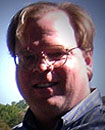 Interview with Algonkian attendee, Alex Keto: "I've been to handful of other conferences and decided that if you find yourself in a large room with someone almost out of eyesight in the front talking at you, the results are what you would expect: generic advice that doesn't really help." Interview with Algonkian attendee, Alex Keto: "I've been to handful of other conferences and decided that if you find yourself in a large room with someone almost out of eyesight in the front talking at you, the results are what you would expect: generic advice that doesn't really help." 

|
|



